
COVID-19 further fuels mental health crisis in Dadaab as durable solutions falter


Saturday October 10, 2020
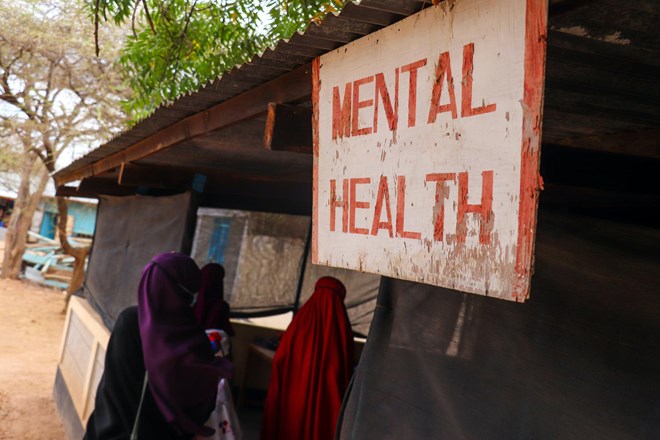
MSF's mental health clinic in Dagahaley camp. Kenya, September 2020./MSF
In the past two months, five people have reportedly attempted suicide in the camp, two with fatal results.
Many refugees in Dadaab were already frustrated with the lack of progress in finding durable solutions. Now they are faced with the new COVID-19 situation, where the meagre humanitarian assistance they depend on has been further reduced amid donor concerns of widening funding gaps. The World Food Programme has been forced to cut food rations by 40 per cent and many other agencies have drastically reduced their presence, severely disrupting access to basic services.
These cuts in food rations, along with a lack of gainful employment and an ever-present uncertainty about the future, have created a new mental health crisis.
In August, Haret Abdirahman’s 24-year-old son killed himself in Dagahaley camp, after what he says was a life with no future prospects.
"Despite finishing his high school education, he kept talking about how life was difficult for him in the camp without a job,” says Haret. "He would often say that he wished he could take his own life, but I never thought he would actually do it.”
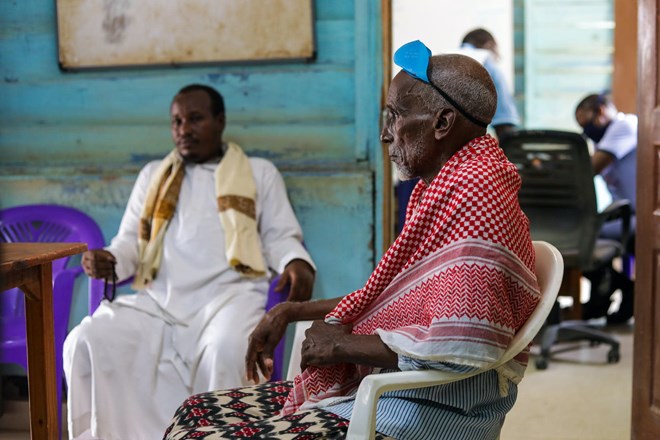
Haret Abdirahman sits with his youngest son during a consultation at MSF's mental health clinic. Haret's eldest son took his own life in August 2020./MSF
"COVID-19 has ended what little chance refugees had of escaping their degrading lives in the camps, compounding the mental distress for many who had nothing left but hope to cling to,” says MSF project coordinator for Dadaab, Jeroen Matthys. "We are seeing a groundswell of desperation in the camp.”
The number of refugees being resettled from Kenya had already slowed to a trickle even before COVID-19; now it has almost completely stopped.
Returning voluntarily to Somalia, where insecurity is widespread and the health system is deeply stretched, seems even less of an alternative for most camp residents. As of August this year, the UN refugee agency UNHCR had reported no returns from Kenya to Somalia. The promise of local integration for refugees has also gradually dissipated as initiatives to extend state services to refugees remain stalled.
COVID-19 may have made finding sustainable solutions that much harder, but meaningful action for Dadaab’s refugees has always fallen far short.
A string of commitments, from the 2017 Nairobi Declaration on Somali refugees, which sought a regional solution to one of the world’s oldest refugee crises, to declarations of support at the first Global Refugee Forum, have all come to nothing.
The little progress that had been made in expanding education opportunities for refugees is now being undermined by COVID-19-induced disruptions.
Thirty-year-old Fawzia Mohamed came to the camp with her family in 1992, when she was barely two years old. She has lived in the camp ever since.
She laments the cloud of uncertainty that casts a shadow over their lives.
"How can you stay in a country for three decades, but not know where you belong?" she says. "You remain a refugee without any prospects. It has an even greater impact on the many youths in this camp, who are hurting economically and socially. The rate of unemployment is very high in the camp, but if the movement restrictions could be removed, then the living conditions of refugees could really change.”
For most Somali refugees who have known nothing but the camps, durable solutions have come to seem frustratingly elusive and unattainable.
Dadaab’s refugees face the prospect of a life sentence in one of the harshest places on earth. Long-term encampment and the fast-vanishing hopes of a life free of the daily indignities of the camp is having devastating consequences on their physical and psychological health.
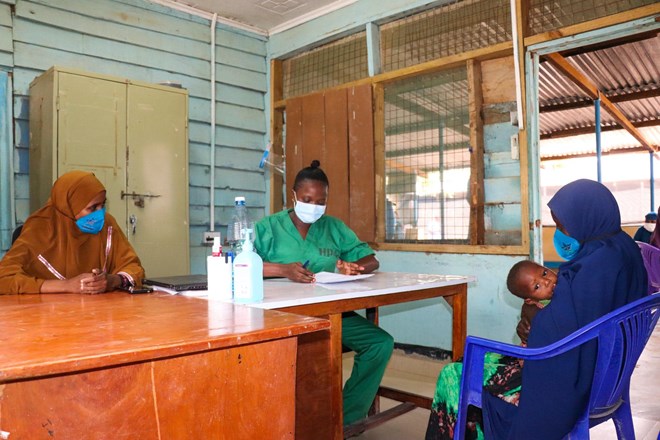
A refugee mother during a consultation at MSF's mental health clinic in Dagahaley. Kenya, September 2020./MSF
COVID-19 increases uncertainty
COVID-19 is likely to significantly worsen conditions in the camps as concerns for Dadaab’s refugees risk slipping further down donors’ priorities.
At the same time, the economic shocks of COVID-19 around the world have greatly diminished the remittances they once received from families abroad. The after-effects of COVID-19 will likely deal a severe blow across societies and poor and marginalised Kenyans will not be spared. But refugees, even those with access to some form of humanitarian assistance, remain extremely vulnerable, and the slightest shock risks upending their lives completely.
"As the Kenyan government draws up COVID-19 recovery plans, integrating refugees would represent a resounding acknowledgement of its commitment to seek a permanent solution for the forgotten refugees of Dadaab,” says Dana Krause, MSF head of mission.
"For donors, there has never been a more apt moment to demonstrate international solidarity with refugees, and they must fully share responsibility with the Kenyan government, not only through financial commitments, but also through restoring resettlement and complementary pathways for refugees.”



 0
0 
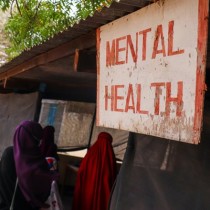


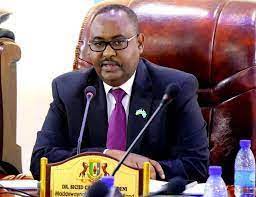
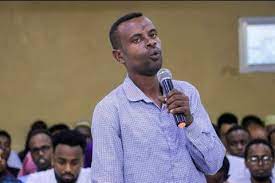
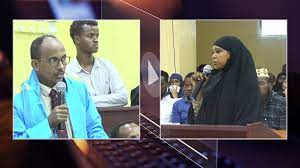

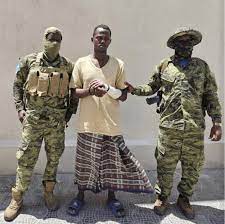


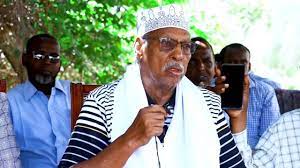
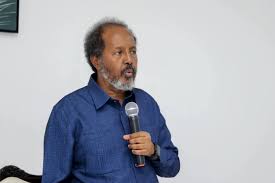
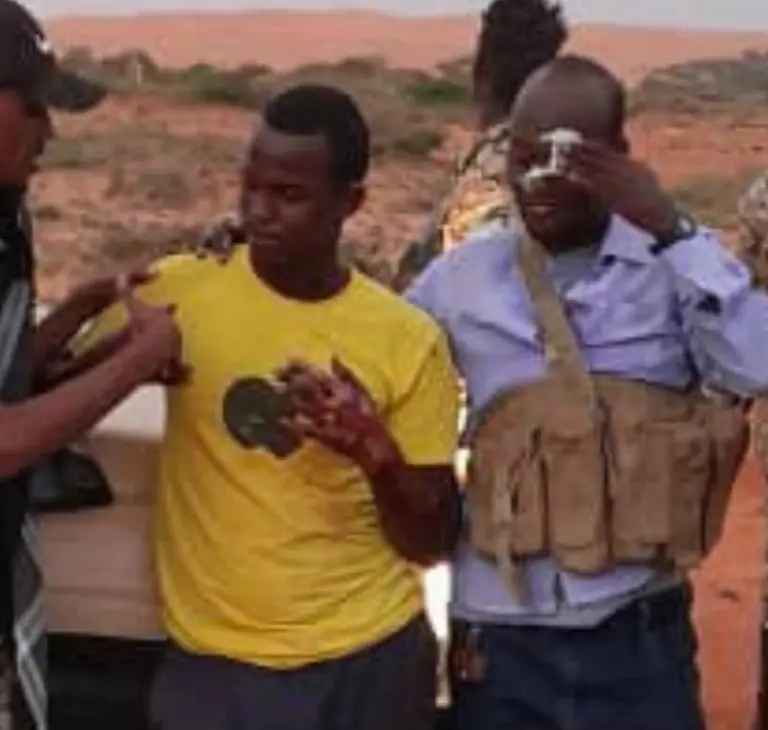
COVID-19 further fuels mental health crisis in Dadaab as durable solutions falter
A mental health crisis is growing inKenya's Dadaab refugee complex, where hundreds of thousands of Somalis have been stuck for decades now. A fatal mix of pent-up despair, anxiety and fear, combined with new uncertainties brought about by theCOV